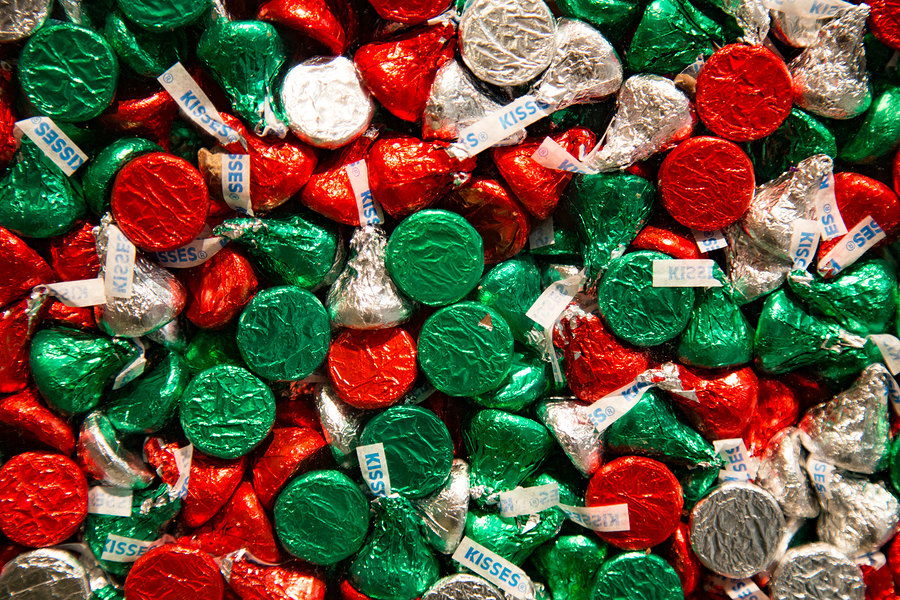Hershey is Going GMO Free
Corporate demand largely fueled the proliferation of genetically modified and glyphosate-resistant sugar beets as a cheap source for sweeteners in candy, chocolates and beverages. Imagine getting a farming contract from a corporation as big as Hershey, for instance. Farmers could get back to work if they filled that demand for the white beets and hopped aboard the GMO train. Consumer apathy and demand for chocolate blissfully fueled the arrangement for a time.
However, as consumers now walk away from GMOs, so must Big Chocolate.
Enter: a huge step for candy-kind.
Star Tribune reports:
Something was different about a lot of the Hershey’s kisses in your stocking this year: The popular chocolates no longer contain sugar made in Minnesota.
For decades, the Hershey Co. has used sugar made from both sugar beets and sugar cane, but it decided earlier this year to stop buying beet sugar because it comes from genetically modified, or GM, seeds that some consumers don’t like.
Hershey, with 2014 sales of $7.4 billion and more than 80 brands of candy sold around the world, was a huge customer for beet sugar farmers, and its decision was significant enough to be noted earlier this month at two annual shareholder meetings of sugar beet cooperatives.
This year was a record harvest year for sugar beets – but what will happen now as the multi-billion dollar corp has left the arena? The media – practically for the first time – is actually concerned about the economics of farmers (and as usual is supporting Monsanto’s oft-repeated claims of safety).
When did GMO sugar beets crash the U.S.?
According to Non-GMO Report:
The USDA “de-regulated” Roundup Ready sugar beets in 2005. The agency had originally de-regulated RR sugar beets in 1999, but candy manufacturers refused to use sugar from GM plants due to consumer concerns, and the beets never took off.
Ten years later and we seem to be back in the realm of a cautious 1999. But, as usual, Hershey like most big food companies and the media is not questioning the safety of GMOs or distancing themselves. Rather, they are being “responsive” to the changing winds. Labels will still say “sugar” either way. Last year, General Mills announced that it was dropping GM sugar and Campbell’s is heading in the non-GMO direction.
Sugar beets currently fuel over half of the U.S. sugar supply and nearly 100 percent of those beets seeds are engineered to tolerate massive amounts of glyphosate pesticides.
As for Hershey, the communications director said:
More than three-quarters of the sugar we are using today is cane sugar – and as we get into 2016, our expectation is to be at or near 100 percent.
“If it hadn’t been for those pesky anti-GMers…”
It is interesting to note that instead of honoring consumer demand – that the CEOs of big sugar companies and farming co-ops refer to the so-called “anti-GM movement” as a thorn in their side and their biggest “challenge.” In other words, they would rather trick consumers with a lack of transparency and untested GE food. They would spend time, money and energy on campaigns against those pesky anti-GMer “claims.” Yet any claims on GMO safety on the part of biotech companies remains unproven and the burden of proof is on them, not on consumers who have legitimate health concerns about what they give their children to consume.
But there has been a GMO test. Doctors partnered with Jefferey Smith’s Responsible Technology site have put their patients on strict non-GMO diets only to find them “miraculously” recovering from conditions that are considered irreversible. Another form of evidence is when a lab autopsy shows that deformed dead or stillbornpiglets were saturated in glyphosate. Or that two weeks on organic food can eliminate all pesticides from an entire family. Some would call that anecdotal and some would call that evidence.
Consumers aren’t the ones with claims – they simply question the wild claims of a mammoth corporation and wish for responsible technology. I applaud Hershey’s move to listen to consumers and I applaud the parents who stopped feeding glyphosate and engineered organisms to their children.
Heather Callaghan is an independent researcher, natural health blogger and food freedom activist. You can see her work at NaturalBlaze.com. Like at Facebook, Twitter and Instagram.












